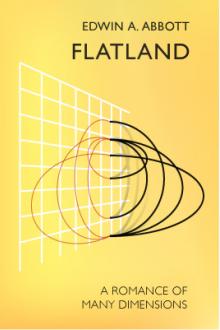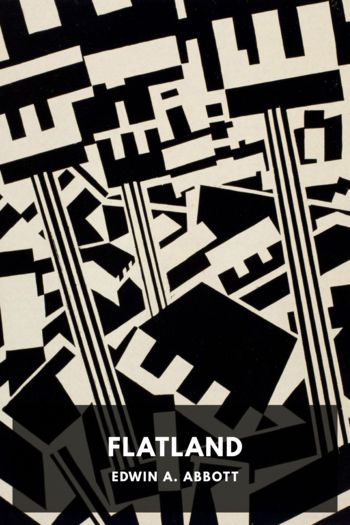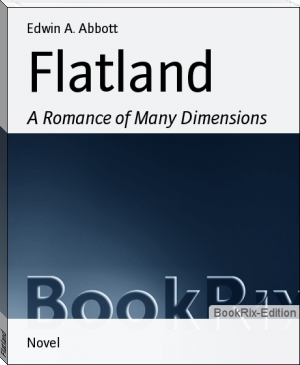author - "Edwin A. Abbott"

he Relative.50. A statement may sometimes be briefly implied instead of being expressed at length. 51. Conjunctions may be omitted. Adverbs, e.g. "very," "so." Exaggerated epithets, e.g. "incalculable," "unprecedented." 51 a. The imperative may be used for "if (2) the common Object of several Verbs or Prepositions. 54. Tautology. Repeating what may be implied. 55. Parenthesis maybe used with advantage to brevity. See 26. 56. Brevity often clashes

true Dimension,although I cannot point out to you its direction, nor can youpossibly measure it.' What would you say to such a visitor?Would not you have him locked up? Well, that is my fate:and it is as natural for us Flatlanders to lock up a Squarefor preaching the Third Dimension, as it is for you Spacelandersto lock up a Cube for preaching the Fourth. Alas, how stronga family likeness runs through blind and persecuting humanityin all Dimensions! Points, Lines, Squares, Cubes, Extra-Cubes

Description Flatland is uniquely both a social critique and a primer on multi-dimensional geometry. Written in two parts in 1884 by Edwin A. Abbott, an English mathematician and theologian, it tells the story of a square living in Flatland: a two-dimensional realm. After a dream of a restrictive one-dimensional existence and the difficulties this poses, he is visited by a sphere from a three-dimensional space who wishes to enlighten him into the ways of “Upward, yet not Northward.” Edwin A.

he Relative.50. A statement may sometimes be briefly implied instead of being expressed at length. 51. Conjunctions may be omitted. Adverbs, e.g. "very," "so." Exaggerated epithets, e.g. "incalculable," "unprecedented." 51 a. The imperative may be used for "if (2) the common Object of several Verbs or Prepositions. 54. Tautology. Repeating what may be implied. 55. Parenthesis maybe used with advantage to brevity. See 26. 56. Brevity often clashes

true Dimension,although I cannot point out to you its direction, nor can youpossibly measure it.' What would you say to such a visitor?Would not you have him locked up? Well, that is my fate:and it is as natural for us Flatlanders to lock up a Squarefor preaching the Third Dimension, as it is for you Spacelandersto lock up a Cube for preaching the Fourth. Alas, how stronga family likeness runs through blind and persecuting humanityin all Dimensions! Points, Lines, Squares, Cubes, Extra-Cubes

Description Flatland is uniquely both a social critique and a primer on multi-dimensional geometry. Written in two parts in 1884 by Edwin A. Abbott, an English mathematician and theologian, it tells the story of a square living in Flatland: a two-dimensional realm. After a dream of a restrictive one-dimensional existence and the difficulties this poses, he is visited by a sphere from a three-dimensional space who wishes to enlighten him into the ways of “Upward, yet not Northward.” Edwin A.
